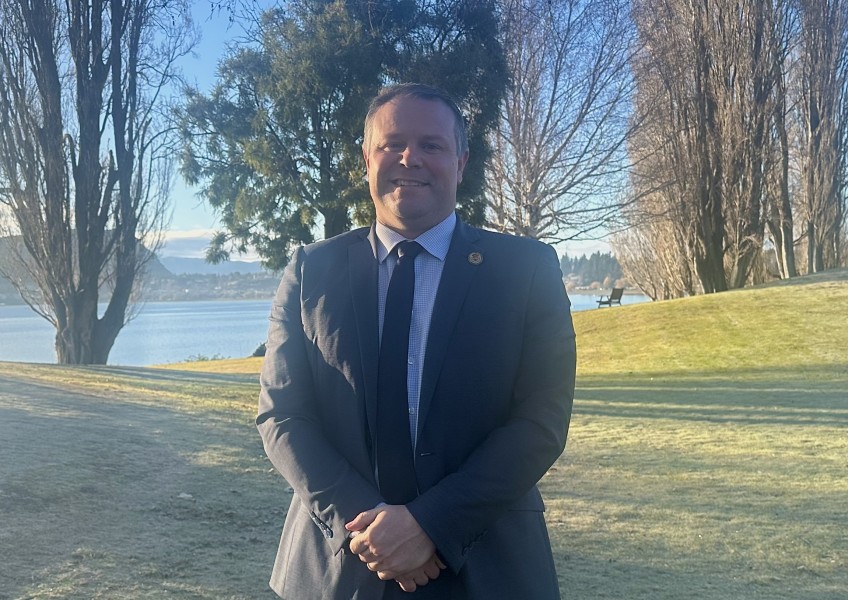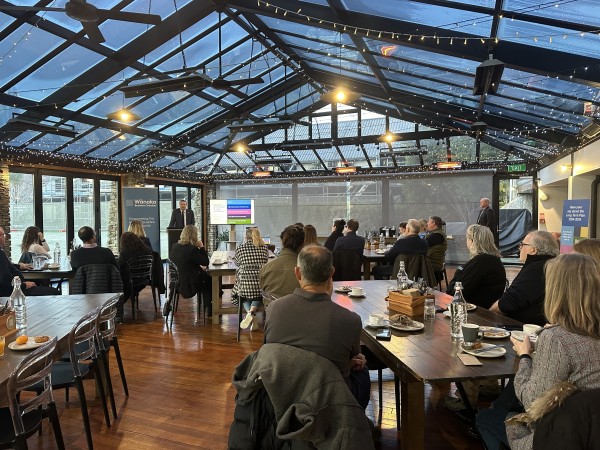Mayor 'confident' visitor levy back on the table

Queenstown Lakes District Council mayor Glyn Lewers says he is "confident" a visitor levy or similar will be introduced in New Zealand after speaking with central government decision-makers this year.
Although Mayor Lewers notes that leaders ruled out a visitor levy pre-election, he says, "privately, it's a more accommodating conversation".
"I have not had a straight-up no when its comes to a visitor levy."
Mayor Lewers has been engaging with key cabinet ministers about the concept for the past six months but says the detail around what it will look like still needs to be worked through.
"I am confident that something like that will occur, whether it is localised, regionalised or nationalised."
He says prime minister Christopher Luxon and finance minister Nicola Willis both recognise that the Queenstown Lakes's economy is very different to the rest of New Zealand.
When Mr Luxon came to Queenstown in September last year he spoke out against a bed tax citing the cost of living crisis as the reason. But Mayor Lewers pushed back at this rhetoric at the time, calling it a "pretty shallow argument".
Negotiations regarding a visitor levy will start towards the end of the year and go into the start of 2025, Mayor Lewers says.
"I’m confident that we will see some focussed policy changes and financial arrangements for just this district."
He recalls the earlier conversations on the topic then-mayor Jim Boult was pushing with central government, and that "the pandemic stopped it from happening" in 2020. Legislation at a national level is needed to progress any type of local bed tax.

Glyn Lewers speaking at a chamber of commerce event in Wānaka on Wednesday, July 3, 2024.
Mayor Lewers revealed this information today (Wednesday, July 3) when speaking to Wānaka's business community at a Wānaka Chamber of Commerce breakfast event at the Edgewater Hotel.
He spoke of financial decisions in the next long term plan, a draft of which is out for public consultation now, saying the council is "focussing on the basics and getting that right" for the first two years of the 10 year plan.
Protecting human and environmental health is the biggest investment in the plan for the first two years, Mayor Lewers says.
Over the 10 years of the plan, $2.44 billion is earmarked for three waters spending.
The mayor says the council is currently grappling with high population growth and getting ahead of the curve, but this is "hard with debt limits".
"It's a balancing act we've got to play."
Reflecting on the cryptosporidium outbreak that hit Queenstown last year and the non-compliance order from water regular Taumata Aromai, has been a "motivating factor" for his personal push to upgrade basic infrastructure.
"I never want to go through something like that again."
He says it's lucky the regulator didn't ask about the situation in the Upper Clutha, where water infrastructure also did not have the required protozoa barriers.
Mayor Lewers encouraged those in the room, and other Upper Clutha residents, to submit on the long term plan before feedback closes on July 28.
Then, fielding questions from the floor, Mayor Lewers was asked what the council was doing to alleviate the level of compliance needed for local developments and infrastructure, saying people in the town would rather have projects "parked up than deal with compliance".
Mayor Lewers agreed, saying the council's acceptance of risk is currently low. He says there is a "lack of maturity" when it comes to risk.
During his response, he upheld the Whakatipu Transport Programme Alliance as a good model, saying it allows a sharing of risk between council and contracting companies.
In response to questions about the need for a new Luggate bridge from one attendee, who says it feels like the bridge is constantly closed, Mayor Lewers replied this was the New Zealand Transport Agency's responsibility, and that the council would be pushing for an upgraded Albert Town bridge first.
He says after a fix was found for the one-lane Albert Town bridge, potentially they would look over at Luggate.
The mayor was also grilled on what the council was doing to allow businesses outside of tourism to grow, and to develop more income streams.
In reply, Mayor Lewers says there is great potential to grow the district and he's pretty confident that can be achieved.
He says the area's primary sector is on a "billboard" to the world, as one in three New Zealand visitors come to Queenstown Lakes.
And, he says "this government has realised that this district is one to invest in".
When asked about McDonald's, Mayor Lewers says it would not be appropriate to involve himself in that regulatory process.
He says council can't deny the consent just because the community does not want it.
"That is not a good enough reason, they have to follow a consent process."
He encourages the 6,000 people who signed the petition against it to provide evidence within the regulatory framework.
Mayor Lewers ended the meeting by asking the group how they'd like to be engaged with, and says his phone and email are online and encourages residents to get in touch with him anytime.


























